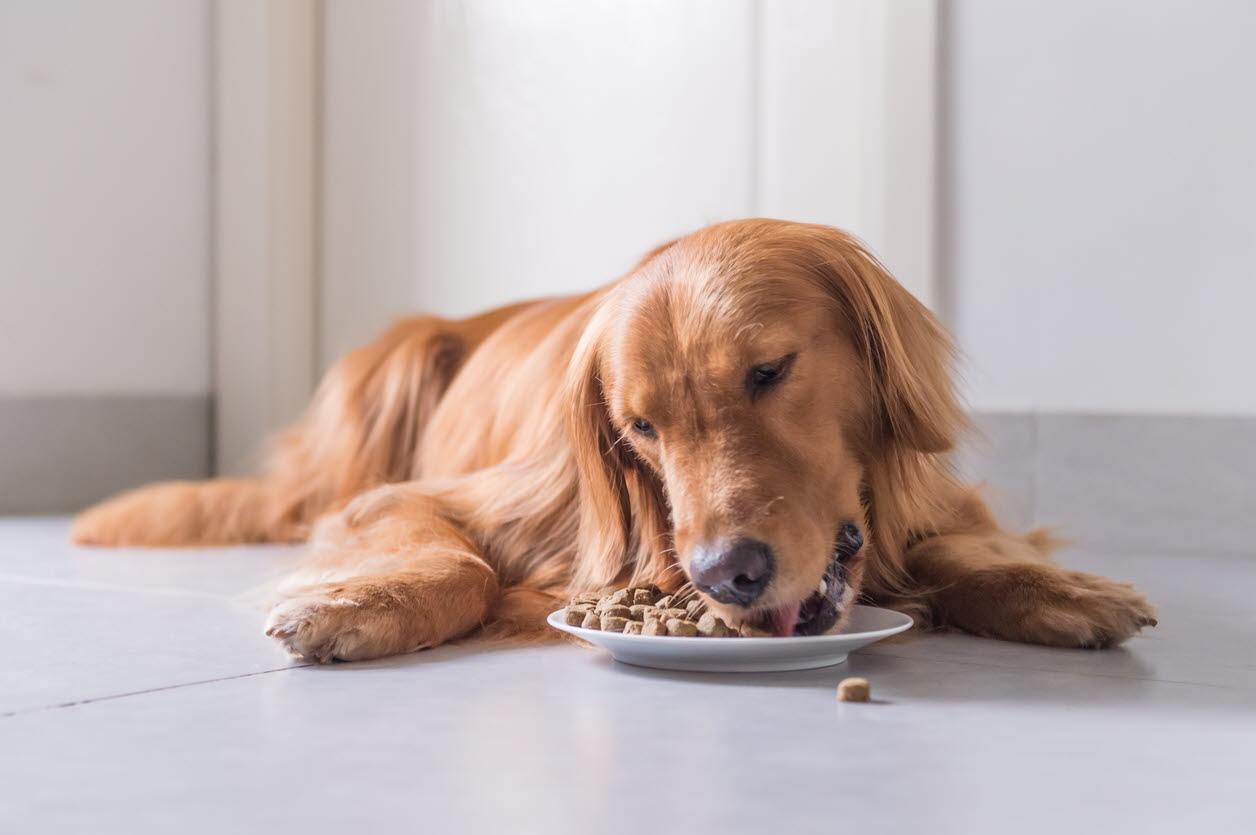Selecting and handling pet food

There are many different types of pet food on the market, from dry biscuits to wet food and even raw food options. Commercially produced pet foods are commonly sold in veterinary clinics, pet or stockfeed stores and supermarkets. Pet food can also be home-cooked provided that important species nutritional requirements are met, so it’s very important to seek veterinary advice about this. There are also several be fed to pets as they can be potentially toxic.
There are a few important things to consider when selecting and handling pet food, to ensure that you are making the best choices for your pet and looking after your own safety.
Selecting the best diet for your pet
With so many options available and a vast number of ways to feed your pet, it is important to ask the following questions when choosing their food:
- Will this food meet the nutritional requirements of my pet?
Providing adequate nutrition is the most crucial role of a diet. Whether it is home-cooked, raw or commercially produced, the diet must be complete and balanced - meaning it contains the correct ratio of protein, fats, carbohydrates, vitamins and minerals.
It is important to note that the nutritional requirements of your pet may change with time. For example, puppies have very different feeding requirements to adult dogs. Similarly, a female dog (bitch) who is lactating (producing milk for her pups) has a much higher calorie requirement than a desexed female dog.
Also, not all species have the same nutritional requirements. Cats are obligate carnivores (meat-eaters), whilst dogs are omnivores (eating both vegetables and meat). Cats fed a strictly vegetarian diet will become severely unwell.
- Does my pet have any health problems that may benefit from a particular diet?
The management of certain health issues in pets (e.g. kidney disease, diabetes, allergic skin disease and obesity) can be assisted by feeding specific diets. Your veterinarian can guide you as to what special diets may be appropriate to help manage your pet’s health condition. - Will I be able to store the food safely?
Different foods require different kinds of storage. For example, commercially produced dry food can generally be stored in an airtight container, whereas raw food and wet food (after opening) will require refrigeration. Food not kept properly or used past its expiry date can cause severe illness in pets.
The safe handling of pet food
The most important way to maintain human health when handling pet food is to practise good hygiene. In particular, this involves adequate hand washing prior to and after handling food and feeding animals so as not to spread germs.
Although raw foods can often be safely given to pets, it is not advisable to feed raw chicken. Raw chicken meat can transmit Salmonella bacteria to your pet. Although they may not show any signs of disease, it is possible that your pet’s faeces can contain the bacteria, which in turn could be a possible source of human infection. Cooked chicken meat (not bones) can be safely fed. Ensuring that pet food is stored correctly will also reduce the risk of human contact with bacteria.
Feeding your pet the right food is important to ensure their optimal health. Remembering to safely handle pet food and practising good hand hygiene is also important. For more information about choosing the right pet food for your pet, please contact your local veterinarian.
